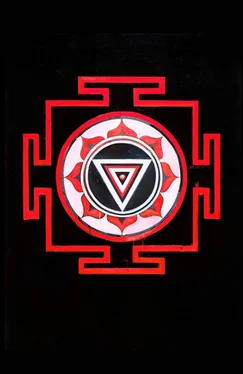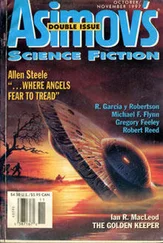The past is a novel, written by Fate, weaving the same themes: love and its glory, hate and its prisoners, the soul and its price. Our decisions become narratives: fated choices that unknowably change the course of the living river. In the present, where decisions and connections are made, Fate waits on the riverbank of Story, leaving us to our mistakes and miracles, because it’s our will alone that leads us to one or the other.
Pausing beside my bike that day, I marked the faces on the street. One face held my eyes. It was a young woman, blonde, blue-eyed and nervous. She was standing on the footpath outside Leopold’s, waiting for someone. She was fearful but determined, somehow: brave and afraid, in equal measure.
I took out the locket that I’d bought from Billy Bhasu. Prising it open, I looked at the photograph. It was the same girl.
There are a hundred good girls on every bad street, waiting for a guy who usually isn’t worth it. The girl was waiting for her boyfriend to return with dope. She wasn’t a user: she was thin, but still too healthy, and too aware of the world. Her boyfriend was the user, I guessed, and she’d sold her locket to Billy Bhasu, a street tout, so that the boyfriend could buy drugs.
I’d been on the street long enough to know the signs of somebody’s desperate habit, even expressed second-hand. I’d been that habit myself, and I’d seen it in the eyes of everyone who loved me.
The fact that the girl in the locket was waiting outside Leopold’s, and not inside, meant that she and her boyfriend were past the early tourist phase, with cold drinks and hot food, and sitting in a restaurant all day long. The fact that she was on the street, and not in a hotel room, meant that they were probably behind on the rent.
She was waiting until the boyfriend came back with the drugs he’d bought with their love locket, and some change to spare for the room.
I’d seen girls like the girl in the locket leave the Island City as ashes, spilled from reluctant hands, not long after they arrived. They were beautiful, as every girl is, and there was always a not so beautiful guy who wrote that part of their story for them.
I could’ve ridden away without a word. I did it every day: rode past sadness, neglect and futility. You can’t jump through every hoop that Fate puts in front of you.
But the locket came to life on the street, imitating art, and I walked over to her.
‘I think this is yours,’ I said, holding the locket in my open palm.
She stared at it, her eyes wide with fear, but didn’t move.
‘Go ahead. Take it.’
Hesitantly, she reached out and scooped the locket and chain from my palm.
‘What… what do you -’
‘I don’t want anything,’ I said, cutting her off. ‘This came across my desk, so to speak. That’s all.’
The girl smiled awkwardly.
‘All the best,’ I said.
I turned to leave.
‘I must have lost it,’ she said quickly, defending herself with a lie.
I hesitated.
‘When my boyfriend comes back, we’ll give you a reward,’ she said, trying on a smile she hadn’t used in a while.
‘You didn’t lose it,’ I said. ‘You sold it.’
‘I what?’
‘And the fact that you sold it with your pictures still in it, means your boyfriend did it in a hurry. The fact he did it in a hurry means he did it under pressure. The only pressure that works on people like us, in this city, is drugs.’
She flinched, as if I’d threatened her.
‘People like us… ’ she said, a Scandinavian accent bumping the words from her lips with a pleasant little music that didn’t match the sadness in her eyes.
I walked away.
I looked back. She was still cringing in that shocked flinch, her shoulders curved inwards.
I went back.
‘Look,’ I said more softly, glancing around in both directions to check the street. ‘Forget it.’
I handed her a roll of notes, the profit I’d made that day, and began to leave, but she stopped me. She held the money in her closed hand.
‘What… what are you talking about?’
‘Forget it,’ I said again, taking a step backwards. ‘Keep the money. Forget I said anything.’
‘No!’ she pleaded, folding her arms in on herself protectively. ‘Tell me what you’re talking about.’
I stopped, and sighed again.
‘You have to leave this guy behind, whoever he is,’ I said at last. ‘I know how this plays out. I’ve seen it a hundred times. I don’t care how much you love him, or how nice a guy he is -’
‘You don’t know anything.’
What I knew was that the next picture she’d sell to someone would be the one in her passport. I knew she still had her passport, because it hadn’t come to me yet. But she’d sell it, I was pretty sure, if her boyfriend asked her to. She’d sell everything, and when there was nothing left to sell, she’ll sell herself.
And her boyfriend would feel bad, but he’d take the money she made from selling her body, and he’d buy dope with it. I knew that, just like every street tout, shopkeeper and pimp around us knew it. It was the truth of addiction, waiting to happen, and they were the truth of the street, waiting to use her.
‘You’re right,’ I said. ‘I don’t know anything.’
I walked to the bike, and rode away. Sometimes you buy in, sometimes you don’t: sometimes you try, and sometimes you ride past. A gold chain and a photograph connected me to the girl, somehow, but there were too many girls, in too much trouble, waiting somewhere for troubled boyfriends. And anyway, I was a troubled boyfriend myself.
I wished the girl in the locket well, and stopped thinking about her by the time I parked my bike at home.
Lisa was preoccupied and quiet as I shaved, showered and dressed. I was glad. I didn’t want to talk. The dinner with Ranjit and Karla hadn’t been my idea.
Although we both lived in the narrow peninsula of the Island City, I hadn’t seen Karla in person since I’d been living with Lisa. I saw pictures of her and Ranjit from time to time, in Ranjit’s newspapers, but Fate never crossed our paths.
Karla haunts the mansion of my life, too , Lisa said. I understood what she meant, but Karla wasn’t a ghost. Karla was more dangerous.
‘How do I look?’ Lisa asked me, standing near the front door of the apartment.
She was wearing a very short, sleeveless blue silk dress. She had a shell necklace, the shell bracelet I’d given her, and her Roman-style sandals laced all the way up to the knees.
Her make-up was more elaborate than usual, but it suited her: sky-blue eyes in a black aurora. Her thick, blonde curls were as loose and free as ever, but she’d cut the fringe of her hair herself with a pair of kitchen scissors. It was irregular, haphazard, and brilliant.
‘You look great,’ I smiled. ‘Love what you did to your hair. Did you put my throwing knife back, when you were finished with it?’
‘Let me show you where to put your throwing knife, buster!’ she laughed, punching me hard in the chest.
‘Are you serious, about seeing other people?’ I seriously asked her.
‘Yes,’ she said quickly. ‘I am. And you should, too.’
‘Is that what this sudden dinner party is about?’
‘In a way. We can talk about it later.’
‘I think we should talk about it now. And about other things.’
‘First, talk to Karla.’
‘What?’
‘She’ll be there tonight. Talk to her. Find out what she’s thinking, and then we’ll talk about what you’re thinking.’
‘I don’t see -’
‘Exactly. Let’s ride, cowboy, or we’ll be late.’
We rode to the Mahesh hotel during a lull in the rain, arriving at the covered entrance just as a new shower began. I parked the bike in an alcove, away from the main entrance. It was strictly forbidden to park there, so it cost me fifty rupees.
Читать дальше












